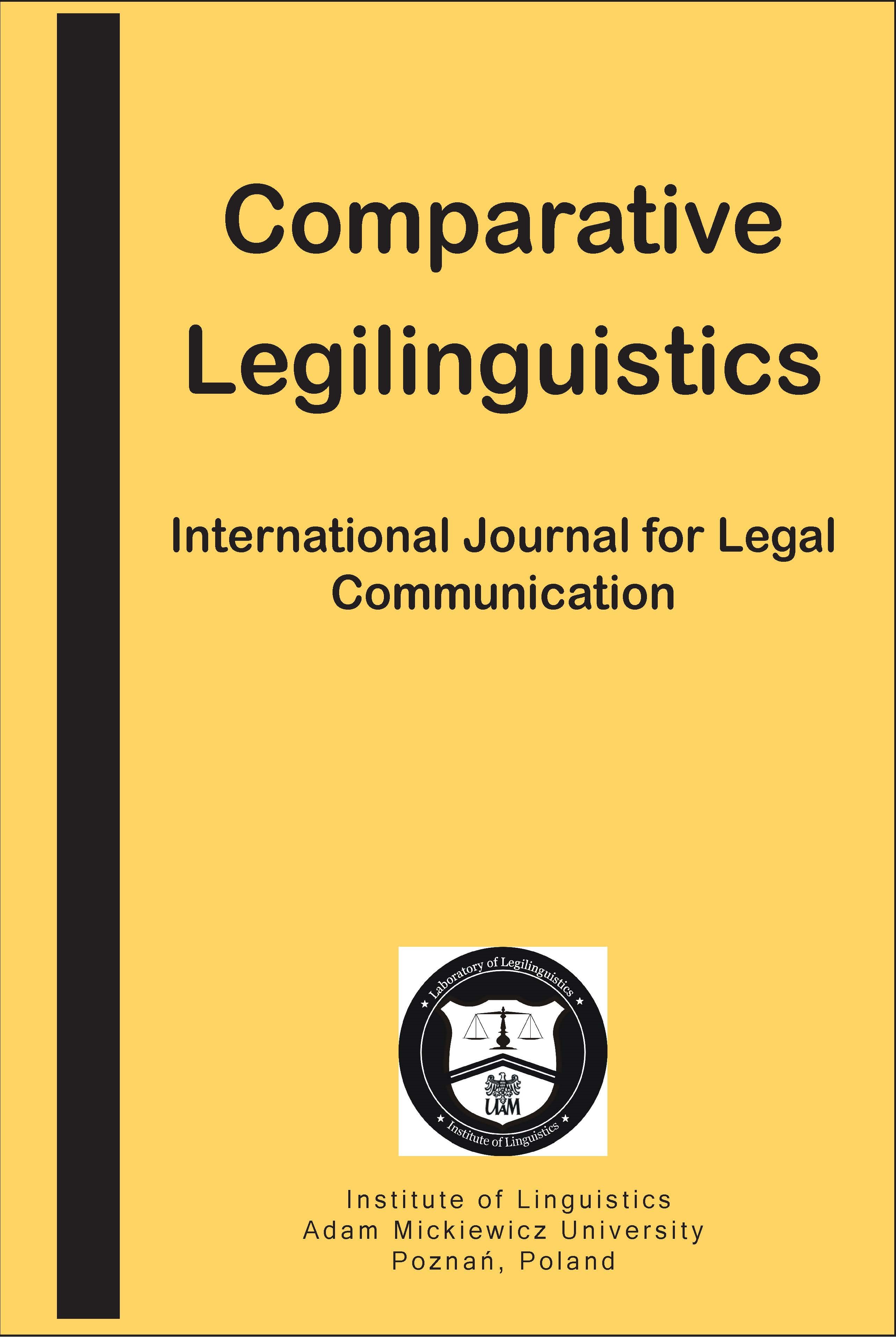Homo juridicus et homo ludens: une approche en jurilinguistique affective
Homo juridicus and homo ludens: an approach in affective jurilinguistics
Author(s): Corina VeleanuSubject(s): Sociology of Literature
Published by: Uniwersytet Adama Mickiewicza
Keywords: jurilinguistics; media; literature; play; emotion;
Summary/Abstract: This paper offers a multilingual perspective from the point of view of affective jurilinguistics on the link between the concepts of justice and play through media and literary discourses. The emotional impact of social norms on the members of any social group is highlighted, while individual and collective identity is built by playing. Playing is construed as a socializing activity per se, be it under an explicit or hidden form. Homo ludens is, by definition, a homo juridicus, too, as he complies with the rules of the social games which characterize life in a community. Researchers in the field of affective neurosciences have demonstrated that our perception of the world is first and foremost affective. The rational construction of concepts and discourse follows affective perception and is rooted in it. In the field of justice, this means that a person needs to feel safe within the group they belong to and make sure that their life and the group’s will go on. Perception is the result of a permanent social contract which is renewed regularly and cathartically through arts. Alain Supiot stated that man is a metaphysical animal, adding that “the life of the senses in a human being is intertwined with the meaning of life” (Supiot, 2005: 7). By perceiving the world through his senses, the human being must bond with the other human beings, being thrown to the others through words. Thus, “the bond of the Law and the bonds of the words are intertwined in order to introduce every new-born baby to humanity, that is to give meaning to their life, in the double sense, general and juridical, of this word” (Supiot, 2005 : 8). Affective jurilinguistics appears to be a privileged area of multidisciplinary research in pragmatics, discourse analysis, history of mentalities and neurosciences, as well as a useful instrument for the observation of language and discourse phenomena within legal texts and texts which are related to the field of law and justice (journalistic and literary texts, etc.)
Journal: Comparative Legilinguistics
- Issue Year: 2023
- Issue No: 53
- Page Range: 5-33
- Page Count: 29
- Language: French

